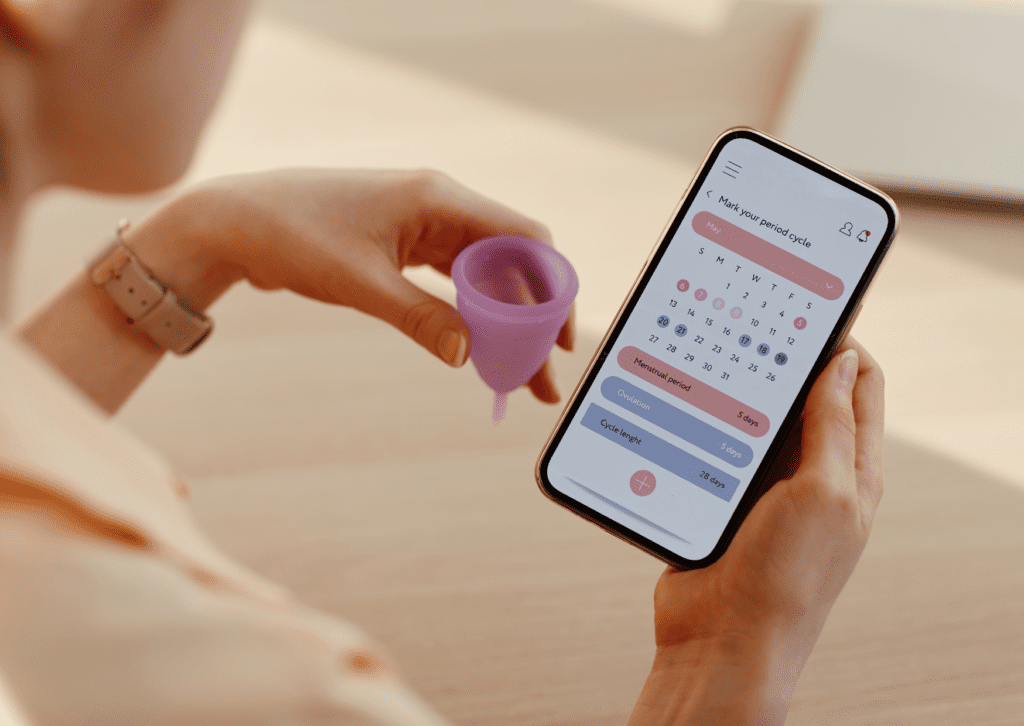Starting your trying to conceive journey is both exciting and nerve-wracking, and understanding early pregnancy symptoms before a positive test can be useful. Many women wonder if they can experience symptoms before taking a pregnancy test, and the answer is yes. Recognizing these early signs of pregnancy can provide a glimmer of hope.
Common Early Pregnancy Symptoms before a Positive Test
Recognizing Subtle Changes

Understanding early signs of pregnancy involves paying attention to subtle changes in your body. These can manifest as slight shifts in your daily routine or feelings. For instance, many women report experiencing heightened fatigue, even with adequate sleep. This tiredness is due to an increase in the hormone progesterone, which helps maintain the early stages of pregnancy.
Another common symptom is breast tenderness or swelling, often mistaken for premenstrual discomfort. Additionally, you might notice an increased sensitivity to certain smells or food aversions, which can be an early clue to hormonal changes. Mood swings, similar to those experienced during PMS, can also occur due to hormonal fluctuations. These subtle changes can be easy to overlook but keeping track can prepare you for the journey ahead.
Physical Indicators to Watch
Physical indicators can often provide the first clues of early pregnancy. Spotting or light bleeding, known as implantation bleeding, is one such sign. This occurs when the fertilized egg attaches to the uterine lining, usually around six to twelve days after conception. While some might confuse it with a light period, the timing and duration are distinct.
Another indicator is needing to wee a lot, driven by hormonal changes and increased blood flow to the kidneys. Some women might also experience mild cramping or a sensation similar to menstrual cramps due to the uterus expanding.
Also, a heightened basal body temperature that remains elevated beyond your usual post-ovulation phase can signal early pregnancy. Observing these changes can help you understand your body better as you navigate this exciting journey.
Emotional and Mental Signals
Emotional and mental changes can also be early signs of pregnancy. Hormonal fluctuations play a significant role in altering your mood and mental state. You might find yourself more emotional than usual, experiencing mood swings similar to those of premenstrual syndrome (PMS). Feelings of heightened anxiety or irritability are common as your body adjusts to new hormone levels.
Additionally, some women report experiencing “pregnancy brain,” characterized by forgetfulness and difficulty concentrating. These changes can be confusing, especially if you’re not expecting them. It’s important to remember that these emotional and mental signals are your body’s natural response to pregnancy. Recognizing these signs can provide reassurance and help you prepare for the journey ahead. Keeping a journal of your emotions and mental state can also be beneficial, offering insights that might help when you discuss your symptoms with a healthcare professional.
Symptoms Before Pregnancy Test
Timing and Expectations
Understanding the timeline of early pregnancy symptoms can manage expectations and alleviate anxiety. Typically, symptoms may begin as early as one week after conception, although some women might not notice any changes until weeks later. It’s crucial to remember that every woman’s experience is unique.
For some, early signs of pregnancy like nausea or fatigue might be immediate, while others may experience a delay or subtlety in symptoms. This variability is normal and can depend on factors like your hormone levels and lifestyle. It’s important to be patient (I know it’s hard) and not rush to conclusions based on symptom presence or absence. Keep in mind that stress can impact fertility and symptom perception. Therefore, try to remain relaxed and embrace a balanced lifestyle while you wait for a positive test result.
Symptoms are Unique
The experience of early pregnancy symptoms can vary significantly among women, reflecting the uniqueness of each individual’s body. Some may experience a variety of symptoms, while others might notice just a few, or none at all, before a positive pregnancy test. Factors such as genetics, health conditions, and lifestyle can influence these experiences. For instance, women who have been pregnant before might recognize symptoms more easily, while first-time expectant mothers may not know what to expect.
Additionally, some women might mistake early pregnancy symptoms for premenstrual signs. This variability underscores the importance of listening to your body and understanding that your experience is valid, regardless of how it compares to others.
Tracking and Noting Changes
Keeping track of your body changes can be a helpful approach when trying to pinpoint early pregnancy symptoms. Begin by maintaining a daily journal to note any physical, emotional, or mental changes you experience. This practice can help you detect patterns or symptoms that might indicate pregnancy before a positive test. Documenting details such as the timing of symptoms, their intensity, and any triggers can offer valuable insights.

Tracking your menstrual cycle, including ovulation and any deviations from the norm, can enhance your understanding of potential pregnancy signs. Keeping a journal not only helps with recognising symptoms, but, also provides useful information for healthcare professionals if needed.
Positive Pregnancy Test Signs
Understanding Test Sensitivity
Understanding the sensitivity of pregnancy tests is crucial for interpreting early positive pregnancy test signs. Pregnancy tests work by detecting human chorionic gonadotropin (hCG), a hormone produced after implantation. Test sensitivity varies, tests with a sensitivity of 10 mIU/ml can identify pregnancy earlier than those with a sensitivity of 25 mIU/ml.
However, testing too early may lead to false negatives if hCG levels are not yet high enough to detect. It’s important to follow the test instructions and consider testing first thing in the morning when hCG concentration is highest. If your initial test is negative but your symptoms continue then test again 48 hours later as your HGC levels double every 48-72 hours.




